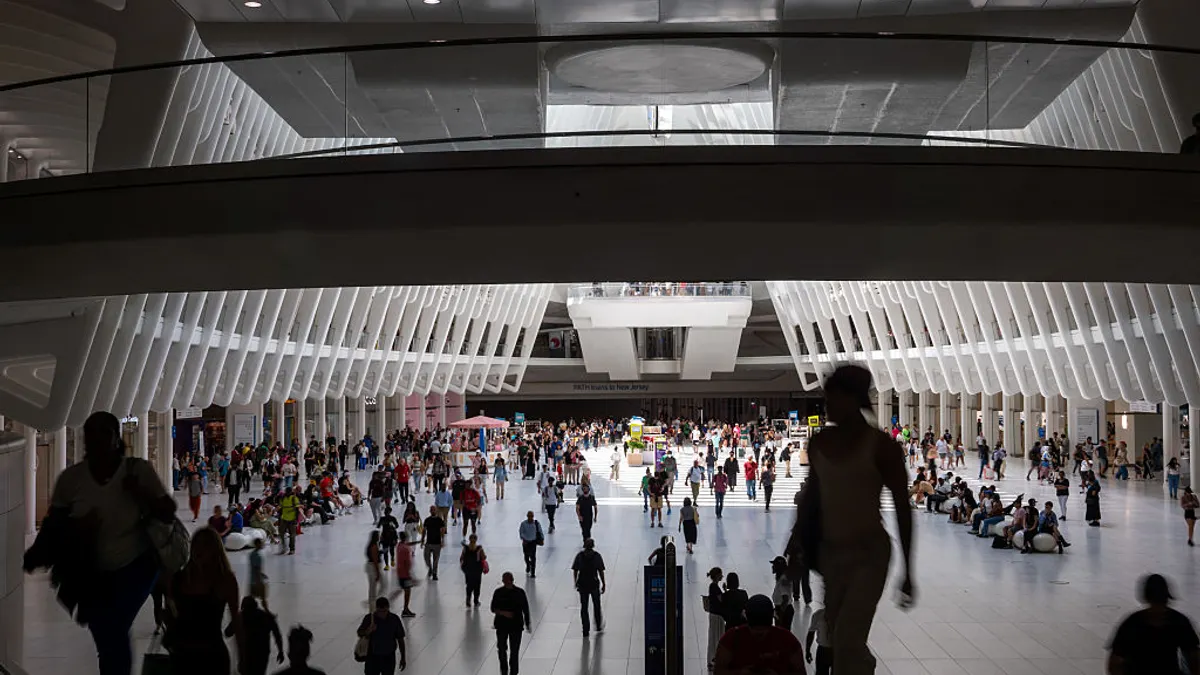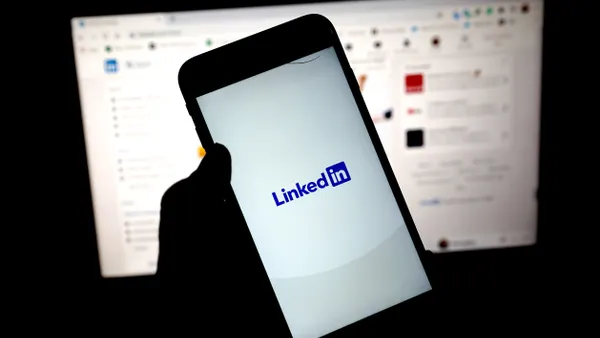Dive Brief:
- Among the 51% of respondents to Workhuman's most recent Human Workplace Index survey who are required to return to the office full time, 71% said they agreed with their employer's decision. Most respondents also said they are generally content, with 79% saying they're happy with their current company and 63% reporting no plans to leave.
- Among the third of workers who didn't agree with office returns, 43% said it was unnecessary for their work and 31% said workers should have the option of multiple setups. In addition, a majority of workers reported concerns about the financial burdens associated with on-site work, including commuting costs and child or elder care.
- Employees who relocated during the pandemic may also complicate employers' return-to-office plans: a whopping 42% of workers would have to move to return to the office, the survey showed.
Dive Insight:
Workhuman's findings are among the first to suggest — after a prolonged Great Resignation and months of tension between management and employees — that many workers may be coming around to an office return.
"I call it 'The Home Alone effect,'" Steve Pemberton, Workhuman's chief human resources officer, told HR Dive. "When you're stranded at home, it seems pretty cool … But after a while, the isolation begins to set in."
Isolation concerns crept up last year, as more than a year of work-from-home arrangements began to take a toll on some workers. Difficulty with the arrangement appears highly variable, with some workers reporting that they're thriving and some saying they're withering under the conditions of a home office. Women and people of color generally have said they're happier working from home compared to their counterparts, for example, while interns said they've suffered from poor communication and connection.
But while workers are longing for the social connection of the workplace, they also are loath to give up the benefits of working from home, Pemberton said. "I just think about my neighborhood since the pandemic began — I see family walks and sitting down for dinner and dropping off at the school bus, reading bedtime stories, you know, things that when you're engaged in a long commute … those human moments oftentimes get lost," he added.
As a result, Pemberton said he believes hybrid work will be the long-lasting compromise for most. This type of arrangement has been on the minds of HR managers for a while now, though executing on it has been a struggle. Last summer, respondents to a TinyPulse survey rated hybrid work as the most emotionally exhausting arrangement. The model, new for most workplaces, is going through a period of growing pains, with workplaces experiencing "hidden gaps, risks, inefficiencies and threats," according to one report.
Finally, it's worth noting that workers across the board seem to be having very different experiences. While Workhuman's report shows workers eager to return to the office, a few other recent reports suggest that employees — burned out after two years of the pandemic, along with the more recent issues of inflation and global conflict — just want stability. And while workers in some industries are content in their jobs and have no plans to leave, others are planning something more like a mass exodus.












